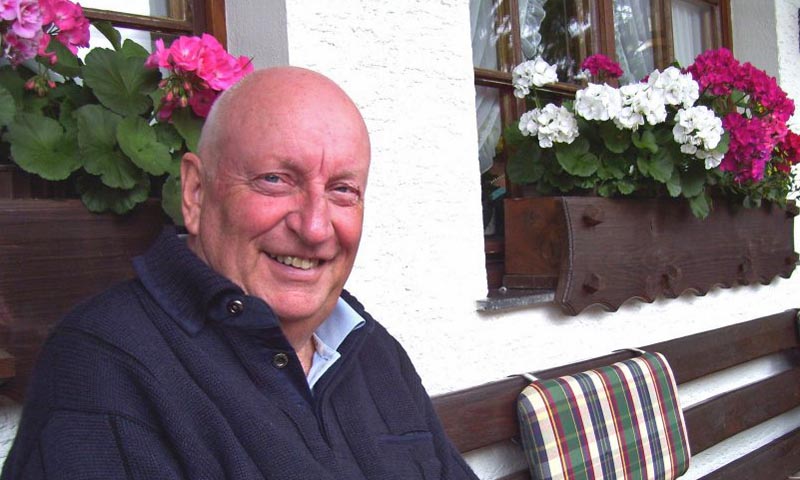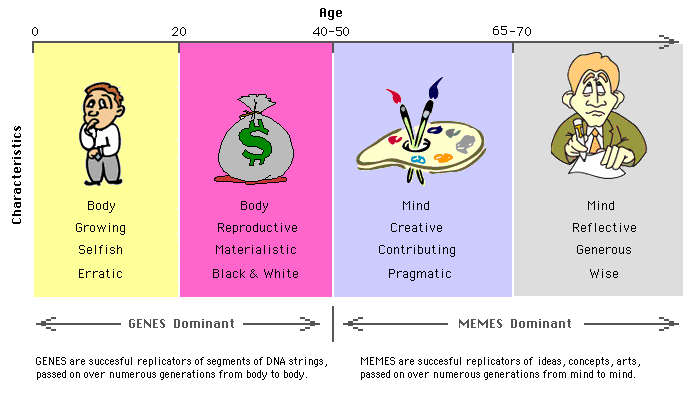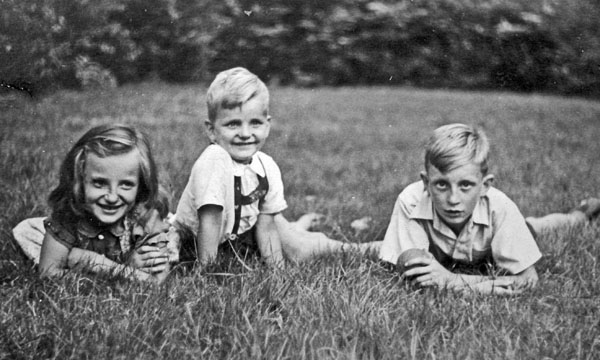9. Happiness and the four phases of Life
Previous - Next - Contents
 Thoughts are like clouds, slowly drifting across the landscape of
your mind. They change in shape, grow, diminish, disappear or just drift
out of sight.
Thoughts are like clouds, slowly drifting across the landscape of
your mind. They change in shape, grow, diminish, disappear or just drift
out of sight.
A spoken idea too merely passes from one mind to the next
and disappears sooner or later.
Therefore the only way to crystallise a
thought cloud into reality is by writing it down. In other words a
thought is nothing until it is expressed by the written word.
The trick
is to find just the right moment (when the thought cloud in your mind has
grown to its maximum size) to catch it and write it down. As you do this
the idea actually grows further, because the writing itself guides you
along towards its full potential and meaning. This is what I hope will happen as I start
writing this next instalment on my Philosophy of Happiness.
The seven factors I have outlined so far involved in the pursuit of
Happiness will probably cover most of us, but with different priorities
and intensities reflecting the nature and inclinations of each
individual.
1. Health 2. Freedom
3. Thought 4. Sense of Purpose 5.
Family
6. Friendship
7. Environment
But there is another dimension which needs to be considered :
TIME.
From our first breath as a baby to our very last here on earth we travel
through a landscape of continually changing circumstances which influences
our individual needs, wishes, desires and consequently also affects the
factors through which we pursue our Happiness.
Let me describe my own experiences in this regard, seen from the
perspective of the four phases of life I proposed to you in Segments
14 and 15 of my series on Life Awareness.

PHASE 1 : Age 5 - 20 years
Throughout my childhood and teenage years the single most important factor
always foremost in my mind were my FRIENDSHIPS. When my relations with my
friends were good I was happy. But when I had the occasional quarrel with
one or more of them I was in despair, almost feeling excluded from life
itself.
Other Happiness factors were also positive but not consciously on my mind :
my health was good, I lived with a harmonious
family and in a wonderful environment at Martinshof. Like everyone else I felt
my freedom only slightly impaired by having
to go to school.
 From a very young age I already felt I was "different" (the word
"unique" would have felt too pretentious then) and the idea of competing at
school did not interest me at all. Throughout primary school, high school
and university, I did just that what was necessary to get me through, but
never an inch more. Why bother?
My thoughts and sense of purpose were focused on my friends and my
leisure time.
From a very young age I already felt I was "different" (the word
"unique" would have felt too pretentious then) and the idea of competing at
school did not interest me at all. Throughout primary school, high school
and university, I did just that what was necessary to get me through, but
never an inch more. Why bother?
My thoughts and sense of purpose were focused on my friends and my
leisure time.
PHASE 2 : Age 20 - 43 years
For most of this phase my friends were still
important to me. But when I got engaged, then married (soon with children)
my FAMILY claimed top spot on my
Happiness list.
As soon as I entered the work force as a geologist however trouble
started. My health, environment and thoughts were all in good shape, but I felt both my
freedom and sense of purpose heavily constrained by my
employment in a company. As time went on these two negatives created ever
increasing unhappiness and depressions and were the direct cause of
my mid life crisis which exploded both my family and my working life
at age 43.
PHASE 3 : Age 43 - 70 years
After a brief spell in Holland (running the family business after my
father's sudden death in 1981) I virtually started a whole new life. Having
regained my freedom from the
shackles of employment, I could now finally direct my life towards a full SENSE of PURPOSE through the study, analysis
and performance in the field of music.
 All my other happiness factors were positive - health : good - environment : pleasant (living right on the beach in
Glenelg, Adelaide) - thought : having a
smorgasbord of new experiences and ideas to feed on - family : I visited my ex-wife and children regularly
and maintained good relationships with them - friendship : with a close friend Shirley and many enjoyable
acquaintances in the music world.
All my other happiness factors were positive - health : good - environment : pleasant (living right on the beach in
Glenelg, Adelaide) - thought : having a
smorgasbord of new experiences and ideas to feed on - family : I visited my ex-wife and children regularly
and maintained good relationships with them - friendship : with a close friend Shirley and many enjoyable
acquaintances in the music world.
During my music study I practiced long hours usually 10-13 hours a
day, but loved it. Later when I moved to the Sunshine Coast (living in a
nice, comfortable house) I worked hard, teaching music to private students,
making little money but being totally happy.
PHASE 4 : Age 70 - ?? years
For many the age of retirement (around 65) may be an important phase
change, as they then perhaps (when leaving the work force) loose their sense
of purpose.
For me however that has not been a problem at all, as my
sense of purpose changed from a focus
on music to a broad all-encompassing spectrum of general reflection and
philosophy.
This change came, rather abruptly, when entering my
70s. There is (at least as I experienced it) a huge psychological
shift as soon as one enters one's 70s. Suddenly that exit door from
life comes starkly within one's range of vision. How long shall I live
on ? One year, 5, 10 or perhaps 20 ?? I feel good and relatively healthy,
I may well go on for another 20-25 years, but one never knows.
All my Happiness factors, I am pleased to say, are in strong and positive
territory, while the main focus of my life now is on my THOUGHTS. And by writing these down
(converting them from just "clouds" into real ideas, memes) I
fulfill my sense of purpose. Significantly, I
started this Blog at the age of 70.
CONCLUSION
Looking once more at my Diagram showing the four phases of life I
find a curious and pleasing correlation :
My
most prominent Happiness factors for the first two (genes dominated) phases
of life are Friends and Family. Showing the focus of my
Happiness then to have been on the people around me.

For the final two phases of life (dominated by memes) however my most
prominent Happiness factors are Sense of Purpose and Thought.
Showing the focus of my Happiness (since my change of life) to have been on my inner self.
Next Page -
Top of Page
Copyright © 2010 Michael Furstner
|